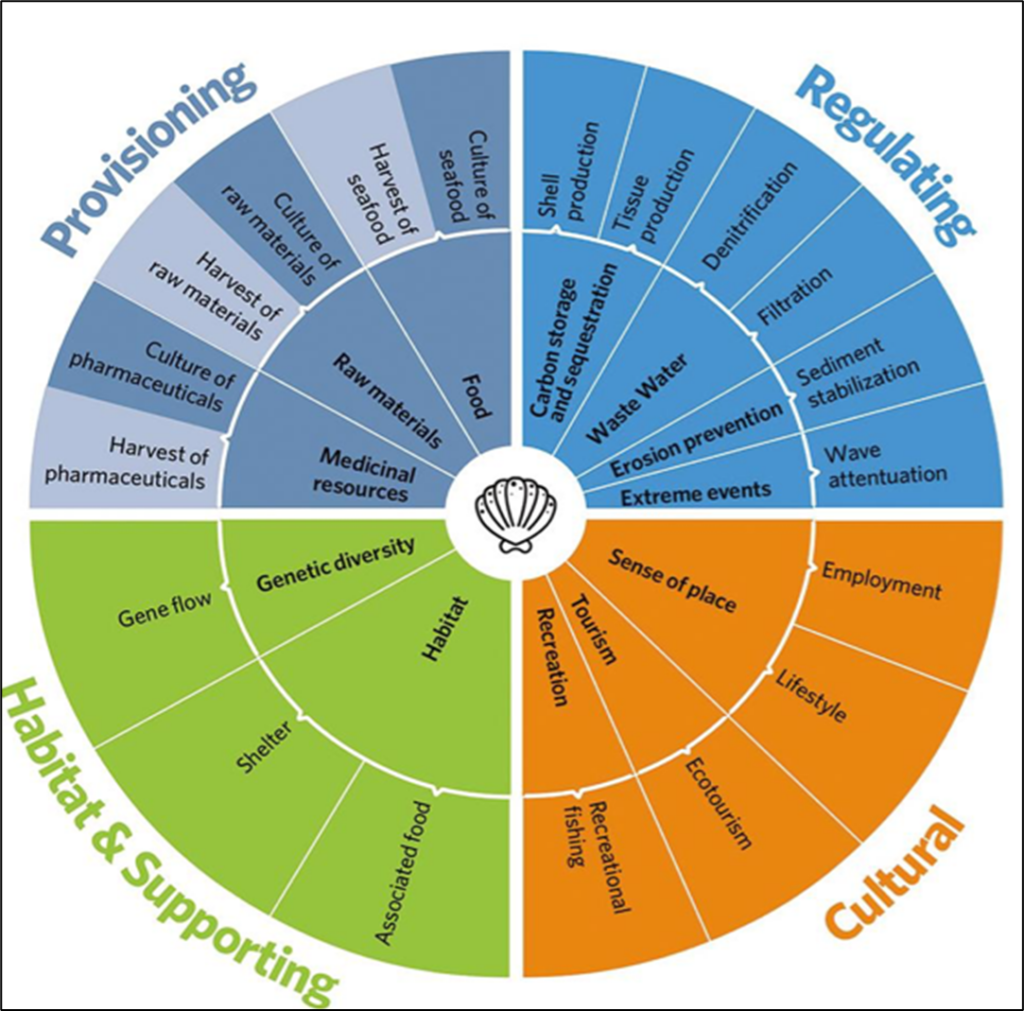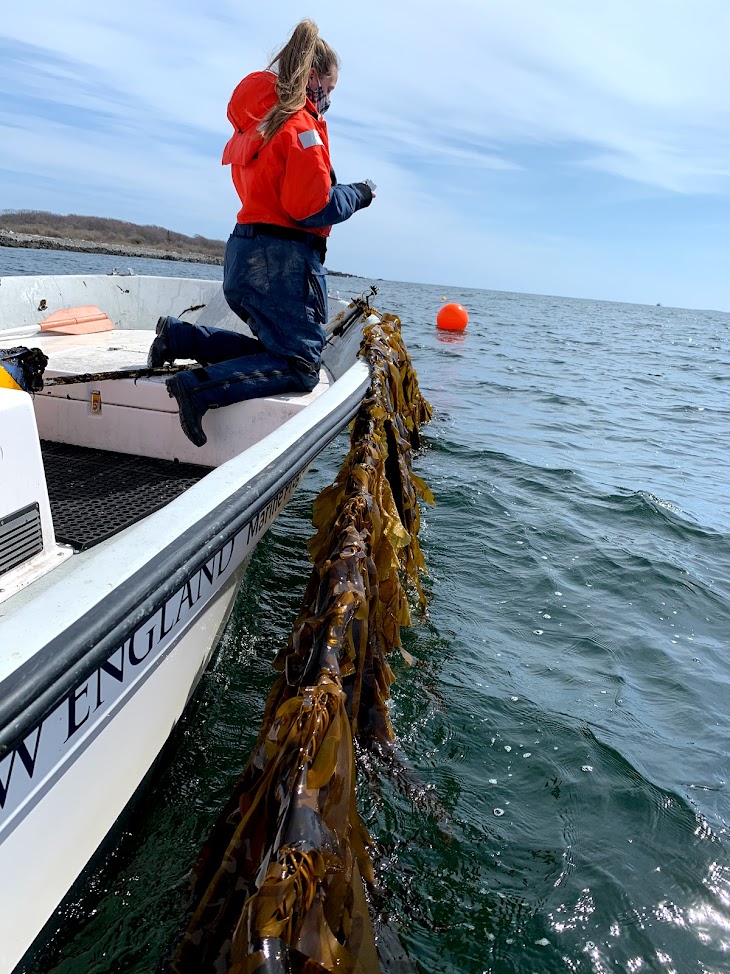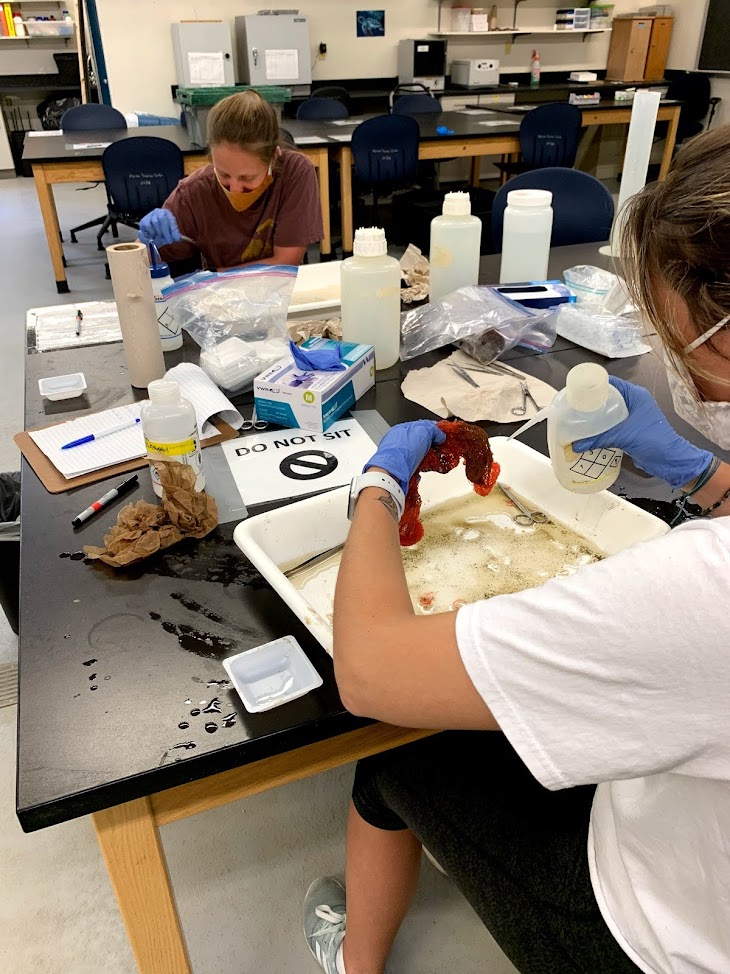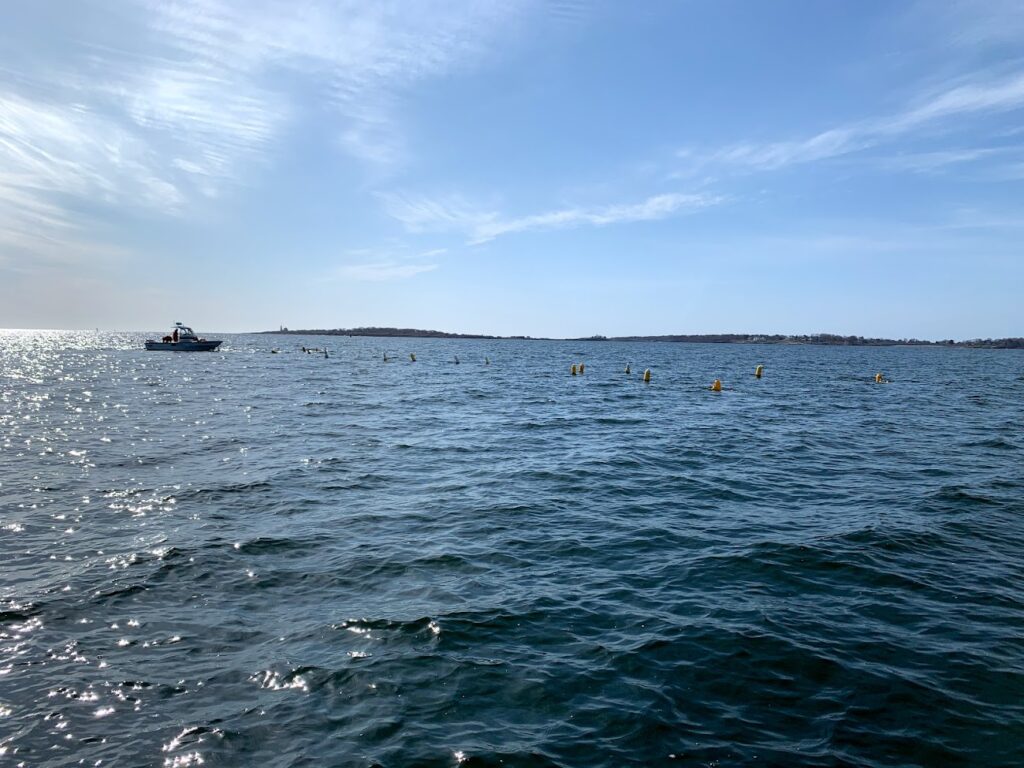Ecosystem Services are benefits humans obtain from a healthy ecosystem (TEEB 2013). These services can be broken down into four different types: Provisioning, Regulating, Cultural, and Supporting.

Image (above) from Alleway et al. 2019 shows ecosystem services for bivalve aquaculture. However, these services can also be applied to seaweed aquaculture.
Specific Ecosystem Services of Kelp Aquaculture:
- Provisioning Service: Food and raw materials
- Regulating Service: Waste water – denitrification
- Cultural Service: Sense of place – employment
- Supporting Service: Habitat – shelter
This research is focusing on the supporting service, habitat creation, because this service is the least studied in temperate kelp aquaculture.
Project Overview
This project has been funded by The Nature Conservancy and Maine EPSCoR
- Through The Nature Conservancy we have quantified organism abundance within farm sites by using GoPro cameras, and small invertebrate collections.
- Funding from Maine EPSCoR has allowed this project to incorporate environmental DNA (eDNA) methods to evaluate habitat creation in kelp farms.
- The Nature Conservancy has also partnered our Maine team with a team at the University of Auckland in New Zealand. Our teams will perform the same methods on our kelp farms to evaluate habitat creation so we can compare how this supporting service differs between hemispheres.





Goals
This project aims to quantify the supporting service, habitat creation through the use of various methods included GoPro camera survey’s, small invertebrate collections, and eDNA. Quantifying habitat creation will fill knowledge gaps as habitat services are the least studied ecosystem services in temperate kelp aquaculture.

Emilly Schutt’s master’s thesis presentation on habitat provisioning of farms.
Willingness to pay for seaweed: This study demonstrates the efficacy of education on ecosystem services of kelp aquaculture as marketing material for kelp end products. Through an online willingness to pay survey, this study found a significant increase in consumer willingness to pay for end products after a brief education on ecosystem services. Price point of the product, income, gender, knowledge of ecosystem services, and frequency of kelp product consumption were found to be significant predictors of the magnitude of change in consumer willingness to pay.
Will Boluc’s PSM thesis presentation on willingness to pay.
